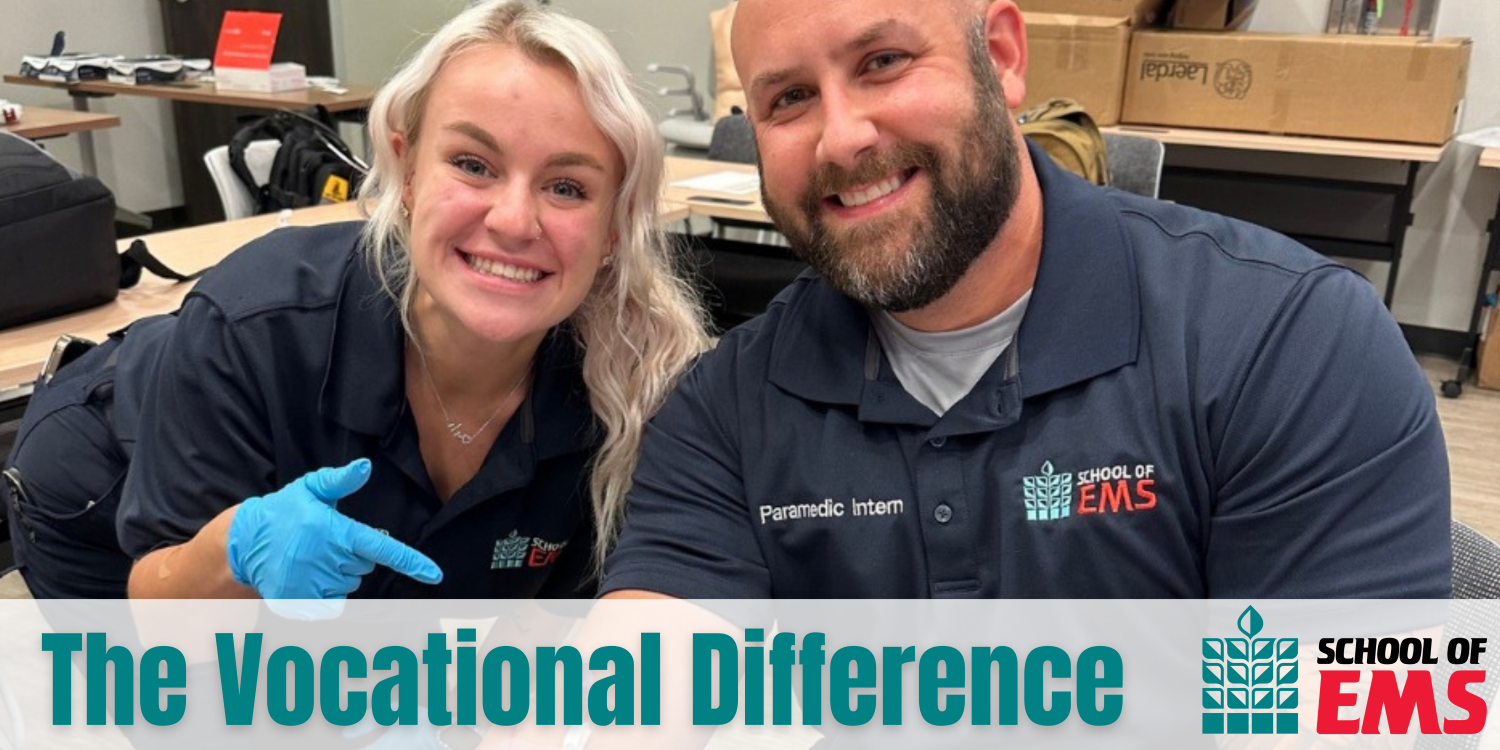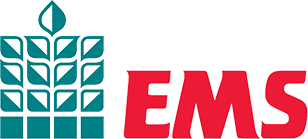The Vocational Difference: Learning that Works
– By #School of EMS

This month, we’re proud to feature an insightful article by our Education Director, Dr. Robert Stanley: “The Vocational Difference: Learning that Works.” Dr. Stanley dives deep into the power of vocational education and how SOE is reshaping the way EMS professionals learn and grow. If you haven’t read it yet, don’t miss this thoughtful take on why real-world experience and employer partnerships matter more than ever in 2025!
______________________________________________________________
When we think of “education,” we tend to imagine fluorescent-lit classrooms, endless writing assignments, and a general feel of “will I need this in the real world?”
Education has an image problem, and it’s one that SOE has committed to changing. We specialize in vocational education – specialized training that is designed to lead to a specific career, certification, or licensure. Academic education is designed to share knowledge. While it has its place, it often leaves graduates without a clear direction.
In the past, education was seen as a prerequisite to having a fulfilling career. Today, education is often the “bow” on an otherwise great career. A degree in history (for example) likely won’t get you a job, at least in that field, but it could be the difference between a promotion and being passed over for someone with a similar resume.
Education research is often focused on this “academic” style, where students rush to the finish without an end goal in mind. Vocational education, on the other hand, has traditionally been a neglected area of research. While EMTs, paramedics, and firefighters are masters at “making do” with what we have, unfortunately, this lack of research has often left FTOs to just pass along what they were taught, how they were taught, because that’s the way it’s been. We want to change that narrative and provide the FTOs, employers, and students alike with a comprehensive system of learning.
Well, it’s 2025, and it's time to treat vocational education with the same level of appreciation and rigor that academic education has received for millennia. The adult vocational student’s career drives the entire process, and schools should be willing to harness that power. SOE does just that by applying key findings from current research to our educational model and philosophy.
Prior experience (or a current position) in the industry is essential to an adult vocational student's success. Students who already work in EMS report better performance in both didactic (lecture) and psychomotor (lab) portions. Even when prior experience makes training feel repetitive, vocational students either appreciate the review or just enjoy the “break.”
SOE leans heavily into this, utilizing students’ previous and current work history in scenarios and discussion assignments – challenging students to learn about other systems and protocols. We teach them how to learn, how to read a protocol, how to evaluate new research, and how to adapt to the changing landscape. Instead of spending hours memorizing doses, SOE provides students with the dose and the vial – just like on an ambulance – and students must draw up the correct volume. This takes the education from academic (recalling a dose) to vocational (actually doing the skills they will need).
Additionally, vocational students are all too willing to use resources from their current position. This is sometimes discouraged, often with a phrase like “don’t learn local protocols, learn national standards.” While this is 100% true, the fact is that the new post-pandemic national standards are incredibly broad, unlike the very specific national standard curricula of the past. Using local protocols can really help students latch onto otherwise “academic” concepts.
As you might expect, SOE leans very heavily into our partnerships with employers. Our sponsor and employer relationship program is unique in its breadth and depth. Many employers tell us that it feels like their own internal program with the amount of input they can provide, as well as the data they receive. We provide employers with real-time, actionable information about their students’ progress and performance, as well as early notification and collaboration on major incidents, showing we are willing to go above and beyond to help employers support our students.
Research into adult vocational learners has found that they differ from academic ones in several ways, but no way is as overarching and powerful as their relationship with their employer. At SOE, we are carving our niche in this space, specializing in partnerships and relationships to make our students successful both in school and their future careers.
About the author: Dr. Robert Stanley is a third-generation paramedic and lover of EMS research. He completed his master’s in public health with a thesis about EMS injury prevention, and his Doctor of Philosophy with a dissertation about online workforce education.
If you have a specific topic you would like to see covered in a future column, please contact me at rstanley@schoolofems.org.
Last Modified:
